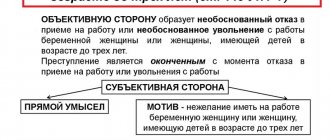Imagine that your heating pipe burst and you flooded your neighbors. Who is to blame for what happened? It all depends on the reasons that led to the unpleasant situation. It is important to pinpoint the culprit here.
Your neighbors will most likely blame you because the breakout happened on your property. It is worth noting that if the heating system breaks, not only the apartment below will suffer, but also your property. Restoring your own living space and paying compensation for the damage caused will be quite expensive. Therefore, it is necessary to find the real culprit of the flood. In this article we will tell you what to do and who is to blame for what happened.
What the law says
According to clause 6 of the Rules for the maintenance of common property in an apartment building, approved by Decree of the Government of the Russian Federation of August 13, 2006 No. 491, the common property includes an intra-house heating system, consisting of risers, heating elements, control and shut-off valves, collective (common house) thermal energy metering devices, as well as other equipment located on these networks.
In accordance with clauses 10, 16, 42 of the Rules, common property must be maintained in accordance with the requirements of the legislation of the Russian Federation (including on sanitary and epidemiological welfare of the population, technical regulation, consumer protection) in a condition that ensures safety for life and health citizens, safety of property of individuals or legal entities, state, municipal and other property, compliance with the rights and legitimate interests of premises owners, as well as other persons.
Based on the law, it follows that the heating radiator located in the apartment belongs to the common property, therefore the management company is obliged to monitor its serviceability, expiration date, etc. But in a real situation, if the heating radiator in an apartment ruptures and flooding occurs, the management company does not always recognize that it is responsible for the proper maintenance of this part of the heating system and is obliged to compensate the owner for damage caused by flooding.
First of all, the management company refers to the fact that since the heating radiator belongs to the apartment, the burden of its maintenance should be borne exclusively by the owner, considering the radiator as personal property and not the common property of the house.
The riser burst: who is to blame and what to do
Therefore, the technical serviceability of the riser and water supply system should first of all be monitored by interested parties - residents. In this article, we will look at the most important and pressing question: who is to blame if a riser in an apartment bursts, and also what to do if a riser bursts and floods the neighbors.
We recommend reading: What is the difference between Permanent and Temporary registration?
In accordance with the Housing Code of the Russian Federation, apartments owned by a housing cooperative are owned by the housing cooperative until full redemption. Thus, the maintenance of privatized and non-privatized apartment buildings is no different from that of housing owners in housing cooperatives.
Are the CCs right?
Let's look at this in more detail. In its decision dated September 22, 2009 No. GKPI 09-725, the Supreme Court explained the following on this issue.
If the heating radiator located in the apartment has shut-off devices, that is, the owner can easily dismantle it after receiving permission for reconstruction without causing harm to the entire heating system, then the radiator belongs to personal property and not to common property. Consequently, it is the owner of the apartment, and not the management company, who is responsible for monitoring its serviceability.
If the heating radiator does not have shut-off devices, then it belongs to common property, and the burden of maintenance will be borne by both the owner and the management company.
Who is responsible for the repair and replacement of common property?
Now let’s figure out who is responsible for the risers in an apartment building. Let's turn again to the Housing Code. It states that the management company (MC) is responsible for ensuring high-quality maintenance of common property . This leads to the conclusion: according to the law, replacing risers in an apartment building, as well as repairing them, is the direct responsibility of the management company. And who should change the batteries in a privatized apartment, read here.
At the same time, the management company must perform its functions in such a way that the condition of the common property at any time ensures the uninterrupted provision of high-quality utility services. An old, rusty riser pipe is an indicator of a clearly low level of work on the maintenance of common property. Find out what the responsibilities of the management company are in the article https://realtyinfo.online/6180-osnovnye-obyazannosti-polnomochiya-uk-soglasno-zakonodatelstvu.
Disputes in court
Disputes very often arise: the management company proves in court that it is not to blame, since it is checking the common property, and the owner is to blame for the radiator rupture, since he also bears the burden of responsibility.
Turning to judicial practice, we can conclude that the court satisfies the claims against the management company for compensation for damage associated with the flooding of the apartment. It is she who must check the serviceability of the common property, even if it is located in the owner’s apartment, and monitor its serviceability.
I came across the only decision denying compensation for damage and the absence of fault of the management company; in it, the court found that the rupture of the heating radiator occurred due to mechanical impact on the equipment by the owner. The owner made an incorrect redevelopment in the apartment and touched the radiator, resulting in a rupture. In all other cases, if the radiator does not have shut-off devices and belongs to the common property of the house, then if it ruptures due to cracks, corrosion, etc., the management company is to blame. She is obliged to monitor the serviceability of the heating system and its individual elements.
Who is responsible for a heating system breakdown?
If the examination determines that the accident occurred due to improper installation, the person who installed the heating system can be held liable. Therefore, it is recommended to use the services of a management company and invite a housing office plumber to perform the work.
We recommend reading: Complaint to the Supreme Court
What to do in case of an accident? If you see a leak, you need to place basins and buckets under it to collect the water. This will minimize the amount of water. At the same time, ask your family to call utility workers to the accident site. They will close the riser and begin to repair the breakdown.
FAQ
Homeowners have the same questions about how to solve such problems.
The following are often of interest:
- where to go if the battery leaks;
- what to do if it is not possible to turn off the water;
- who is to blame if the neighbors are flooded?
Where to go if the heating battery is leaking?
It makes sense for owners of apartments in multi-storey buildings to call a plumber by contacting the housing and communal services service, HOA or management company. Emergency telephone numbers should be posted in entrances. There is an option to call an employee of a private company that provides such services. In a private home you will have to deal with the problem yourself.
How to eliminate a leaking heating battery without shutting off the water?
If the cause of the leak is a crack in the pipe, it can be wrapped in rubber and tightened from above with any clamp or wire. If it is a small sink, then you need to take a metal screw with a rubber washer and screw it in with a screwdriver. These measures are only effective at low pressure in the circuit. After the manipulation, you need to turn on the pump and make sure that the repaired area can withstand the water pressure in the system.
When radiators leak in an inaccessible place and the leak is small, you should add mustard to the expansion tank. Place a container under the dripping unit and increase the temperature of the water in the system. Mustard powder, like a liquid sealant, reaches the leak and closes it. There are ready-made liquid sealants on sale just for such cases. Add them to the system, and all minor leaks will stop bothering you.
Causes of heating battery failure
The risk of radiator leakage exists regardless of the season. Of course, in the summer this is not so bad, while in winter the water in the radiators can be more than 60 degrees. In this case, not only will the property be damaged, but there is a possibility of serious thermal burns. Most often, such breakdowns occur for the following reasons:
- old pipes that have been in use for decades;
- improper installation or use;
- damage during summer maintenance work.
The sooner the cause of the breakdown is determined, the greater the likelihood that your neighbors will not have claims against you specifically.
The leak must be repaired immediately. First, you need to remove small children and animals from the room and turn off all electrical appliances. When hot water flows, a blanket is thrown over the radiator. Secondly, emergency services are called immediately. Before her arrival, you need to remove the water so that it does not reach the neighbors.
Who is responsible for maintaining heating systems?
The operation of common property falls on the shoulders of management organizations, depending on their type. The Housing Code regulates the following methods of managing apartment buildings (MCD):
- apartment owners when concluding an agreement for the management of the house together with the management company and/or for the maintenance and repair of apartment buildings with the relevant organizations;
- homeowners association, housing construction cooperative.
From this it is concluded that responsibility for the serviceability of the heating batteries lies in the hands of the service organization, provided that an appropriate agreement has been concluded with it.
What to do if your apartment is flooded as a result of a heating radiator rupture after pressure testing?
Every year, the heating system is tested in houses to determine the absence of leaks in the heating pipelines and the readiness of the building for winter operation. Unfortunately, during this same period, apartments flood from the heating system quite often. The fact is that technically incorrect and uncontrolled pressing of pipes leads to a sharp surge in pressure in a closed system - a water hammer in the heating system, which leads to damage and rupture of the radiator or ball valves.
Since, according to Government Decree No. 491 of August 13, 2006, the common property includes an intra-house heating system consisting of risers, heating elements, control and shut-off valves, collective (common house) heat energy metering devices, as well as other equipment located on these networks, then the management company or other organization entrusted with the functions of managing common property is responsible for flooding of the apartment that occurred due to improper maintenance of the heating system.
A special feature of disputes regarding flooding of an apartment with a management company is the fact that in such disputes the owner of a flooded apartment, being a consumer in relation to the management company, can also recover, in addition to the amount of damage, a “consumer” fine, compensation for moral damages and penalties provided for by the Law on the Protection of Consumer Rights.
In Moscow, many apartment buildings are managed by the State Budgetary Institution “Zhilischnik” of the corresponding district of the city, despite the peculiarities of the legal status of a budgetary institution, the State Budgetary Institution “Zhilishchnik” is the same management organization that is responsible to the owners of the apartments, including liability in case of damage damage as a result of flooding due to untimely repair of common communications or for other reasons related to improper management of an apartment building. If “Zhilishchnik” is to blame for the flooding of your apartment, then in order to compensate for the damage in any case you need to go to court (“Zhilishchnik” never compensates for damage based on a claim). However, in 100% of cases, the collection of money from Zhilishchnik ends with the actual execution of the court decision, since Zhilishchnik is a budgetary institution, the money is paid from the treasury of a constituent entity of the Russian Federation.
- Have you been flooded?
Call us at 8 (495) 223-48-91 or leave a request on the website, we will contact you as soon as possible and advise you in detail on the procedure for recording the fact of the flood and the damage caused!
Advice from our lawyers will help you avoid mistakes and prepare documents correctly. Do not waste time searching for information on the Internet, consult with specialists. Legal consultation is free!
Free legal consultation
Step-by-step instructions “What to do if your property is flooded as a result of a ruptured heating radiator, and how to recover damages from the management organization (TSN/HOA)?”
We recommend that you adhere to the following procedure when flooding the premises from the heating system in order to minimize the damage caused, as well as to seek compensation for it from the management company.
Step 1: Take immediate action to reduce the damage and your safety
First of all, it is necessary to de-energize the room where flooding occurs as quickly as possible. Lower the heater levers in the distributor box on your landing or directly in the apartment. Take all possible measures to preserve property (cover laminate flooring, furniture, appliances with film, place containers in the leak area, etc.). Next, you need to call the emergency service. By implementing these actions, you can alleviate the consequences of the flood and save property. We also recommend taking photographs of the aftermath of the bay.
Step 2. Report the flood to the organization that manages the house and get a report drawn up
This organization (MC, TSN, HOA, Housing cooperative) is obliged to draw up an inspection report of the premises, which indicates the causes of the leak and the amount of damage caused.
You can find out the exact details of the organization managing your apartment building at the address of the house at.

Example of information in the apartment building management register
When is the bay act drawn up?
In accordance with paragraph 152 of the Russian Federation Decree No. 354 dated May 6, 2011, in the event of damage to the consumer’s property due to the fault of the management organization, the act must be drawn up within 12 hours from the moment of contacting the emergency dispatch service.
The apartment flood report is an important document that records the fact of flooding, describes the damage to the apartment and indicates the person at fault.
The form of the act is arbitrary, drawn up and signed by commission. The date of drawing up the act and the stamp of the management organization are affixed. The report must contain information: about the owners, tenants of the flooded residential premises and the apartment in which the leak occurred, about representatives of the management organization, facts of flooding and damage to property, places and volumes of flooding of the apartment and damage to property. For example, the extent of damage to the ceiling and walls is expressed in square meters; for damaged property, the degree of damage is indicated with a description of the identifying features of things. The act is signed by an employee of the Criminal Code, the owner of the flooded apartment and the culprit.
Get a detailed description of all damage from an employee of the management organization. If the management organization refuses to draw up an act, send it a notice of flooding by telegram indicating the date of inspection and contact the housing inspectorate with a complaint (attach a copy of the telegram). If the management organization does not show up for the inspection, arrange it yourself.
Inspection report of the premises drawn up by the management company in connection with flooding
Legal advice
It is important to correctly record the fact of the flood and the damage caused
Since, as a general rule, the fact of flooding and the amount of damage caused is recorded by the management company, then in situations where flooding of an apartment occurred through the fault of the management company itself (HOA), the management company will in every possible way avoid signing the act of flooding or record the damage not in full, refuse to recognize the act of the culprit when it is obvious. Therefore, it is important for the owner of a flooded premises to know these tricks and stop them: send a notification about the flood in writing, if evading drawing up an act, complain to the Housing Inspectorate about the Criminal Code, add your comments to the act if the information in it is incomplete or unreliable, as a last resort, invite an independent expert and draw up your act with the involvement of neighbors. The Gulf Act is an important piece of evidence in the Gulf dispute, but not the only one, therefore, in the event of illegal actions of the Criminal Code in order to reduce your liability, be prepared to “fight” and prepare additional evidence in your defense.
What to do if the management company refuses to draw up a report on filling the apartment with water from the heating system?
- notify the organization managing your home about the fact of flooding (by sending a telegram with return receipt requested to the legal address)
- take a photo of the flooding and damage
- draw up a deed with the signatures of your neighbors. At the end of the document, indicate that the management organization refused to send its representative and draw up an act, although it was duly notified.
- contact an independent specialist to assess property damage and determine the cause of the leak (the culprit)
Errors in the Bay Acts
1
Errors in the personal data of the victim and the culprit
2
Incomplete description of the damage caused (incomplete list of damaged property)
3
Lack of signature of the culprit (or indication of the culprit’s refusal to sign the act)
4
Lack of signatures of commission members and the seal of the management company
5
Invalid date of flooding of the premises
These errors in the acts can lead to unpleasant consequences for the injured person. For example, a court may refuse to satisfy a claim to recover the cost of carpets, furniture, appliances, or other property located in an apartment, since this property was not indicated in the apartment filling act drawn up by the management company. Don't make these mistakes. Before signing the act, carefully study it, demand changes and additions to the act, or better yet, show the documents proposed for signing to an experienced lawyer.
You can send the bay act drawn up by the management organization to our email or via Whatsapp, Telegram by phone +79854244041. Our specialists will analyze the act from the point of view of protecting your interests.
In most cases, two acts on the flooding of the apartment are drawn up. The first act is drawn up on the day of the flood (as they say, “hot on the heels”), and the second act 10-12 days later, when additional consequences of flooding may appear. This allows you to more objectively assess the amount of damage and identify any damage that may not have been detected immediately. To draw up an additional act of filling, you must also contact the Criminal Code (hand over the application for drawing up an additional act against signature or send by telegram/mail).
Step 3. Order a damage assessment from an independent appraiser
If the management company refuses to satisfy your demands, voluntarily take measures to determine the amount of damage and document it. To do this, contact an independent appraiser to conclude an agreement to assess the damage and agree with the appraiser on a day to inspect the apartment. If you are flooded with water from the heating system, then the main consequences of the flood will appear after some time (for example, significant traces of rusty leaks may appear, wallpaper will peel off, fungus will appear and parquet will swell). Therefore, in this case, it is better to postpone the assessment and conduct it no earlier than after 2 weeks.
To inspect the premises by an appraiser, it is necessary to invite the organization managing the house in advance (no later than 3 working days before the date of inspection by sending a telegram). The telegram can be sent through the Russian Post office or through. At the post office, you must say that you need a telegram with a receipt confirmation and a paper copy (if you send through the website, you need to select the appropriate items). If the parties to the dispute do not appear for the inspection, this will not become an obstacle to the procedure, and there is no need to reschedule the inspection (with proper notice).
The appraiser must be a member of the relevant SRO and have a qualification certificate in the relevant field. Based on the results of the inspection, the appraiser will prepare a report on the amount of damage caused as a result of flooding of the apartment (other premises).
If the management company refused to indicate the culprit of the leak in the leak report, we also recommend ordering a construction and technical examination, in which a specialist will determine the cause of the leak. To determine the cause of the flood, the expert examines not only the flooded premises, but also the premises from which the leak occurred, as well as common property and communications.
Be extremely careful when choosing an appraiser or expert. Check out reviews of his work and his portfolio. When studying a portfolio, ask to provide not only appraisal reports (expert opinions), but also court decisions in cases in which the plaintiff’s claims were based on these reports (compare the figures in the pre-trial report and the results of the forensic examination, how different they were, whether the appraiser was invited to court hearing and how the court assessed his testimony). Listen to how a specialist describes to you the process of conducting an inspection and compensation for damage (compare his description with these instructions to understand how experienced a specialist he is). The expert's opinion (assessment report) is important evidence in the Gulf dispute. Also, keep in mind that the court may subpoena the expert to testify. The expert’s (specialist’s) answers to the court’s questions will also be important in the case; on their basis, the court will also evaluate the specialist’s competence and the correctness of the calculations. A good specialist will be able to defend his research and conclusions in court. Often, the testimony of an experienced specialist helps to avoid a long and expensive forensic examination.
The culprit of the flooding of an apartment (other premises) can also be identified during the trial on the basis of a forensic examination. In this case, the lawsuit names all potential culprits of the bay as defendants. However, due to the fact that a forensic examination is a rather expensive undertaking, and the costs of paying for it may also be borne by the plaintiff, we recommend ordering a specialist’s opinion before filing a claim in court (in this case, when challenging this conclusion, the defendant may apply for an examination, costs in this case, in most cases the defendant will also pay).
Save the agreement with the expert organization (appraiser) and documents confirming payment for their services. Based on these documents, you will be able to recover the costs incurred in court from the culprit of the flood. Also keep documents confirming the sending of notification of the inspection date to the culprit and interested parties. These documents will allow you to “protect” the pre-trial assessment report and, in some cases, avoid a lengthy forensic examination. In addition, in judicial practice there are cases of refusal to satisfy claims in this category of cases due to the fact that the alleged culprit of the incident was not notified by telegram about the inspection of the apartment for the purpose of drawing up an estimate (for example, the decision of the magistrate of site No. 394 of the Academic District dated 24.08. 2012 in case No. 2–187/394-2012).
Step 4. Submit a claim to the management company as the culprit of the flood, demanding compensation for the amount of damage
Send the claim with your demands and a copy of the assessment report to the culprit in a valuable letter with a list of the attachments. If the culprit is the management organization, then the period for responding to the claim (satisfying the claim) is 10 days.
Despite the fact that the claim procedure for such disputes is optional, its compliance will allow, firstly, in some cases to resolve the dispute amicably, and secondly, to avoid leaving the claim without progress (despite the illegality of the court’s actions in this case, in order to prove the illegality of such a court ruling requires spending a lot of time appealing it, much more time than submitting a claim). In addition, in a dispute with the management company, failure to send a claim to the management company may become the reason for the court’s refusal to collect a “consumer” fine.”
The management organization may offer compensation for damage in a smaller amount or repair the flooded premises. You have the right to accept or refuse the alternative reimbursement. In this regard, we will give the following recommendations: if the damage is insignificant, then repairs from the management company will in many cases be more profitable than going to court and engaging a contractor, and will also save time. However, if significant damage has been caused, the apartment has been renovated using expensive materials, expensive furniture and other property in the apartment have been damaged, we recommend not agreeing to repairs from the management company, since the quality of such repairs, as a rule, leaves much to be desired (in addition, the management company often saves on materials). Therefore, if you want better quality repairs, it is better to recover the full amount of damage and penalties from the management company through the court, so you can choose a reliable contractor and carry out “your” repairs at the expense of the management company. At the same time, as practice shows, taking into account the “consumer” fine, the owners “remain in the black” (they not only receive money for repairs, but also compensate for moral damage and inconvenience caused by the flood).
Here is one example:
With the amount of damage being 481,238 rubles, the court imposed a fine of 243,119 rubles and moral damages of 5,000 rubles. and compensated legal expenses
Step 5. If the claim is not fulfilled, file a claim for damages in court
If the dispute is not resolved out of court, file the claim in court.
If the cost of the claim does not exceed 100,000 rubles, then the statement of claim against the management organization for compensation for damage in connection with the flood is submitted to the magistrate; if it exceeds, then to the district court. As a general rule, a statement of claim is filed in court at the location of the defendant. However, when filing a claim with the Criminal Code, the plaintiff has the right to choose a court in accordance with the jurisdiction options established by the Law on the Protection of Consumer Rights.
When filing a claim for compensation for damage due to flooding of real estate, you must pay a fee, the amount of which depends on the value of the claim. When applying the rules of the Law on the Protection of Consumer Rights to the claim (when filing a claim against the management company) if the cost of the claim is up to 1 million rubles. no duty is paid.
The length of time for consideration of a case in court depends on many factors: the workload of the court that is considering the case, whether a forensic examination will be carried out at the initiative of the court or another party, in which instance the consideration of the case will be completed.
When going to court, you can additionally recover from the management company (if the management company is the culprit of the flood):
- compensation for moral damage
- a fine of 50% of the awarded amount (note that the amount of the fine may be reduced by the court in some cases)
- penalty for violation of the deadline for compensation for damage (after receiving a court decision on compensation for damage, for the period from the date the court decision entered into legal force until the actual receipt of money)
- all legal costs (paid assessment costs, lawyer fees, state fees, postal and telegraph costs)
If, as a result of your apartment flooding with water from the sewer, you were forced to move to rented housing or a hotel, then you can additionally file a claim for damages in the form of expenses for renting an apartment (payment for a hotel) during the period of impossibility of living in the apartment. The practice of awarding such damages in disputes over the Gulf, although not numerous, does exist.
Thus, if the culprit of the flood is the management company, then it is economically more “profitable” than the flood caused by the neighbors. Firstly, since these relations are subject to the Law on the Protection of Consumer Rights, in addition to compensation for directly caused damage and expenses incurred in connection with the legal process, the owner can recover compensation for moral damage and a significant fine for the refusal of the management company to compensate for damage voluntarily (for this reason “going to court” in such cases is even more profitable than receiving money from the Criminal Code in a pre-trial manner). Secondly, for the same reason, if the amount of damage is less than 1 million rubles. no state fee is paid for considering a claim in court (when filing a claim against a neighbor, you must pay the fee in any case). Thirdly, the management company, as a rule, is a more solvent defendant (especially if it is a budget institution), therefore, executing a court decision against the management company is usually easier and faster. That is why experienced bay lawyers are trying to get the court to establish the guilt of the management company (HOA) in the flooding that occurred.
However, disputes with the management company have certain disadvantages for the owners of a flooded apartment. We have already talked about the first disadvantage above - if the culprit is the management company, then it is often difficult to obtain a proper act on the bay from it. Secondly, the interests of the management company in pre-trial settlement and trial, as a rule, are represented by experienced lawyers who specialize in such disputes and know the intricacies of judicial practice on claims for damages, so it is more difficult for a non-specialist to “fight” the management company in such disputes. The task of a management company lawyer is to preserve the company’s assets by any means necessary. In addition, an experienced lawyer will operate with facts and evidence, knowing in advance their significance for the court, which certainly gives him an advantage. Therefore, citizens who have all the trump cards in their hands, but are confused in the process, can easily be left with nothing, due to the fact that the lawyer of the management company or HOA skillfully misled the court. You should not think that the court’s task is to delve into all the intricacies of your situation and thoroughly study (or simply flip through) thousands of pages of documents. After all, judges are some of the busiest people on the planet. In addition, the court can only base a court decision on appropriate and admissible evidence, so some “evidence” may not be accepted due to inconsistency with procedural law (for example, correspondence with an inappropriate person, audio recordings). Thus, in the process, it is important to provide the right information in the right form and at the right time, which can be easily handled by a specialist. Whether or not to involve a lawyer in a dispute about the bay with the management company is up to you, but remember that with a lawyer you have a better chance of proving your case in court and recovering the maximum amount from the culprit of the flood, in addition, if you win, the management organization will reimburse the costs of the lawyer, then If you get help from a lawyer, it will be free of charge (you can also find a lawyer with payment for services based on the result).
Case study:
Damages in the amount of 1.4 million rubles were recovered, as well as a fine (730 thousand rubles), moral damages (50 thousand rubles) and all expenses were compensated
In this case, the costs of a lawyer were compensated in a separate court ruling, since our Client paid for the lawyer’s services after collecting money from the State Budgetary Institution “Zhilishchnik”, so the costs of the lawyer were declared separately.
Step 6. Receive and present a writ of execution for collection
After the court decision has entered into legal force, it is necessary to obtain a writ of execution to enforce the court decision (if the defendant does not voluntarily comply with the court decision). The claimant has the right to present a writ of execution to the bank where the defendant has an account, or to the bailiff service. If the culprit is the management company, then it is advisable to submit the writ of execution to the bank indicated in the receipts from the management company for payment of utilities. You can also find out information about open accounts by sending a request to the tax authority and attaching a certified copy of the writ of execution. The deadline for execution of a court decision depends on the availability of funds and other property of the debtor and the activity of the claimant.
If the defendant is the State Budgetary Institution of Moscow “Zhilishchnik”, then the writ of execution must be submitted to the Moscow Department of Finance at the address: 115054, Moscow, Bakhrushina Street, 20. The execution period is 30 working days. If the management company is a state budgetary institution in another constituent entity of the Russian Federation, then it is necessary to also contact the relevant financial authority of the constituent entity of the Russian Federation with a writ of execution.
Important! Before drawing up an inspection report and an assessment report, as well as during the trial, it is not recommended to carry out repair work on the premises, as well as throw away things damaged during the flood and indicated in the assessment report, since a forensic examination may be carried out (at the initiative of the defendant or court).
Don’t have time to independently deal with damages caused by flooding of an apartment (non-residential premises)?
Order comprehensive services of a lawyer and appraisers with payment based on results.
In most cases, we work for a percentage of the amount received into the account, without prepayment. Call us by phone or leave a request on the website, we will contact you as soon as possible and answer all your questions! Legal consultation is free! Order services
When is the apartment owner to blame for a battery breakdown?
Responsibility for floods and damaged property does not always lie with utility companies or the management organization. There are cases when the apartment owner himself is to blame for the accident. This happens when you yourself changed pipes and radiators, but did it incorrectly. You will also need to pay for the damage to yourself and your neighbors if you did not promptly replace the damaged battery yourself or did not use the services of specialists. Another option when the responsibility falls on you is not allowing an authorized person to access the heating system during a scheduled inspection.
In the case of a rented apartment, responsibility for burst pipes lies not with the tenant himself, but with the landlord, be it the owner of the home or an apartment rental organization. Therefore, the full owner of the apartment must monitor the condition of the heating system, and, of course, the renter must report current breakdowns.







